Close UP
Pinocchio: General Incorporated Association Pinocchio is a place for everyone in the community: children and adults, foreigners and Japanese.

Pinocchio members who were interviewed for this article, from left: Ms. Ichinogo, a Japanese class volunteer; Ms. Hatsuko Kawana, the president of Pinocchio; Mariko-san, the Cinema Club and after-school club volunteer; Mr. Takayanagi, a Japanese class volunteer; Ana Lus-san, a learner, and her son, Kotaro.
The General Incorporated Association Pinocchio is working on the theme of "a place for children". However, since its establishment, the activities have gradually expanded to a wide variety, ranging from a children's cafeteria to an after-school club, a parenting & anyone cafe, a Japanese class, an adult cafeteria "Hokkori-tei", and a Cinema Club. It is now a gathering place for everyone in the community, including children as well as adults. We interviewed Ms. Hatsuko Kawana, the president of Pinocchio - who realizes projects full of ideas with her light footwork - about Pinocchio's activities, from its foundation to the present.
A safe place for all children in Kita City, where Ms. Kawana has lived for a long time.
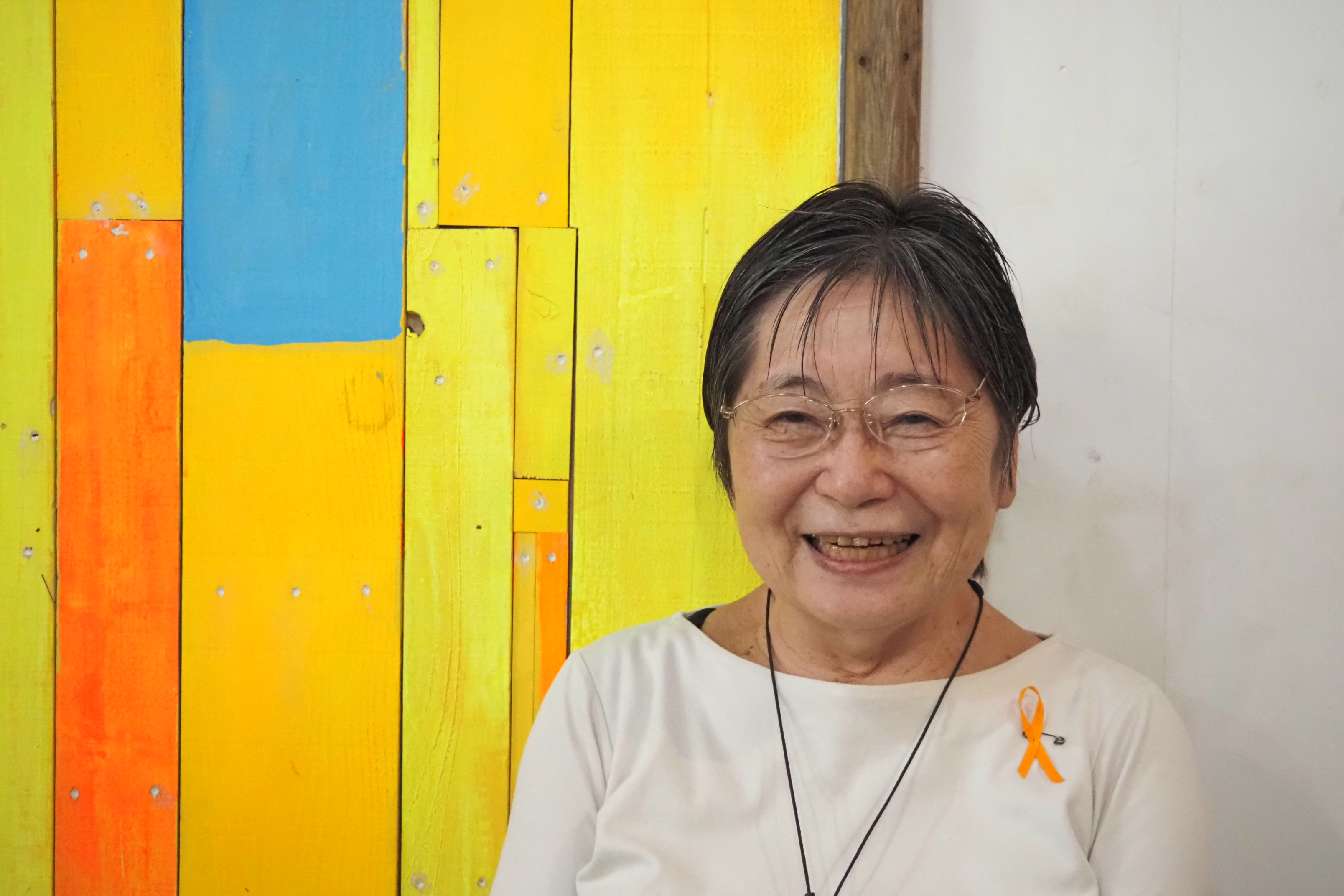
"Children have the right to grow up loved and happy, no matter what kind of parents they are born to." Speaking like this, Ms. Kawana has been working to prevent child abuse for more than 20 years: teaching a class on child and family welfare at Waseda University until March 2019, while also being active in the Waseda Foster Parent Study Group; which she founded together with her students. Ms. Kawana says that upon her retirement, she started working toward her dream of creating a safe place for all children in the community in Kita City, where she has lived for more than 40 years while she raised her children.
Pinocchio is located in a space on the first floor of a public housing complex. Ms. Kawana spent about a year looking all over Kita City for a location to create an ideal place to stay. In the process, she was contacted by a real estate agent who later also became Pinocchio's advisor and was able to find the current location. The street in front of the chosen location was well-traveled in the neighborhood, so many people were curious about what this place would be while the renovation work was underway. At the time of the Pinocchio orientation meeting, about thirty potential volunteers who resonated with Ms. Kawana's thinking showed up.
Then, in August 2020, Pinocchio was born: a children's place where organizations and community members can work together. "Thanks to the many people we met and cooperated with, we were able to open [Pinocchio] successfully," says Ms. Kawana. They had many ideas before opening, but due to the restrictions imposed by the spread of COVID-19 and other factors, they decided to start with a children's cafeteria.
A third place for children that is neither school nor home.
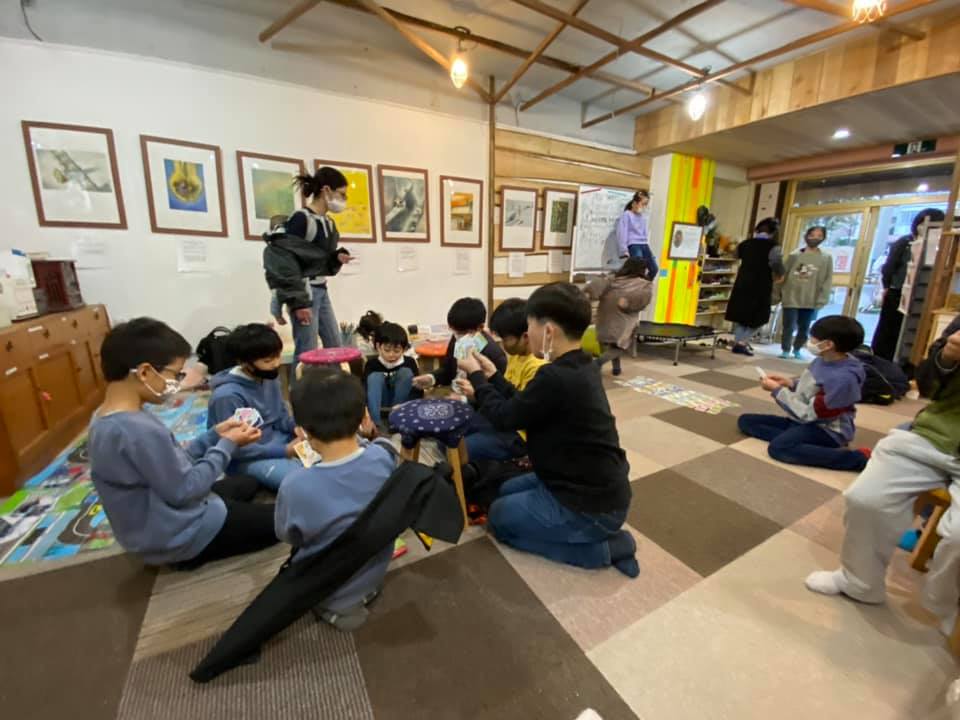
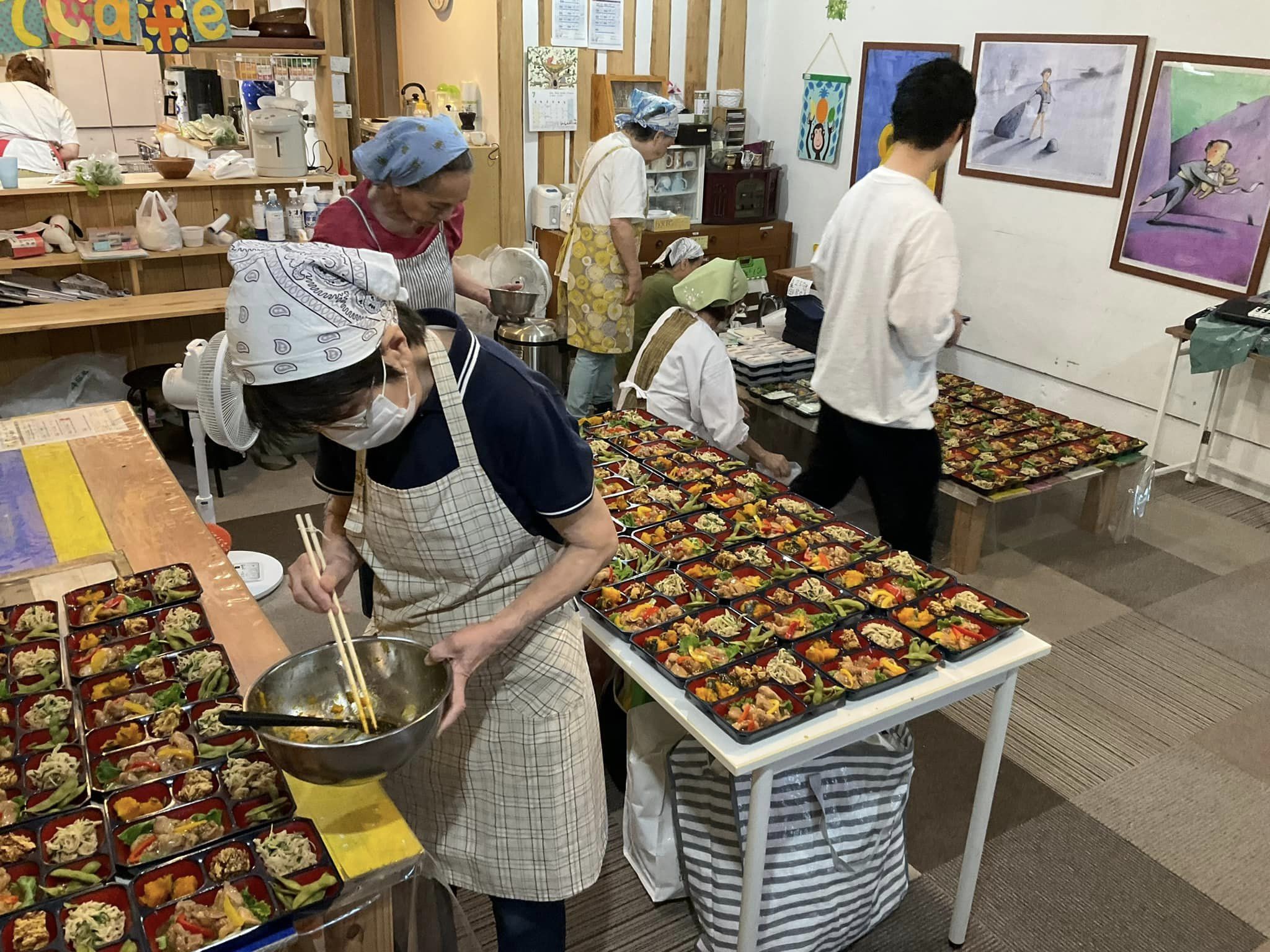
Children's Cafeteria at Pinocchio is held on the 1st, 3rd, and 5th Tuesday of each month. Here, children's allergies, and foods they cannot eat for religious reasons, are also taken into consideration. "When I was talking to a boy from Bangladesh who lived in this apartment complex, he told me that he wanted to come for a meal, but there were some things he could not eat [for religious reasons]. The nutritionist at a nearby elementary school told me that the school does not provide lunches that accommodate allergies or religion, and on days when there are foods that [children] cannot eat, schools ask [children] to bring their own lunches. School lunches are served daily, but our children's cafeteria is open two to three times a month. We decided to make it a children's cafeteria where children with [food restrictions] can also come to eat."
For this reason, users were required to register, and a nametag card was made for each person. The name tags include information such as what cannot be eaten, and a red sticker for children with allergies, as well as a mark for those who want to get large portions: a gentle reminder for everyone to enjoy their food, and eat with peace of mind.
The after-school club, held weekdays from 4:00 to 6:00 p.m., attracts about 20 children at most. Many elementary school children live nearby, but middle school students - as well as parents and children returning from nursery school - sometimes come to visit, and Pinocchio watches over them and provides snacks as a place like a child center. Recently, children from a nearby international French school have started coming to visit. By playing together, children are able to overcome the language barrier and naturally become friends.
Ms. Kawana says that children sometimes get into mischief and show a side of themselves at Pinocchio that they do not show at school or at home. Pinocchio, a third place that is neither school nor home, seems to be an important place for children.
A Japanese Class Where You Are Welcome with Your Children

Pinocchio teaches the rules and culture of Japanese life, as well as holding Japanese class for foreign residents in the neighborhood. A mother of a family from Bangladesh who lives in the same apartment complex as Pinocchio was isolated because she could not speak Japanese, which led to the decision to offer a Japanese class.
Ana Lus-san from the Philippines, who attends the class, says, "I used to go to a class in Akabane. But after I got pregnant, I had to quit (the class) because it was too difficult to take a train, and I studied by myself for a long time. I learned about Pinocchio when my friend (who is a fellow mother), who volunteers here, gave me a flyer. I was happy because I could have a place to study Japanese in my neighborhood. I also invited my friends who live nearby. I can bring my son and let him play next to me while I study. I can go to class without worry. The teachers are very kind and I want to study Japanese hard."
The Japanese class is held twice a week and is taught by Mr. Takayanagi and Ms. Ichinogo, who take turns teaching the class. Mr. Takayanagi says, "Japanese class is one hour long and face-to-face. One-on-one study is ideal. I used to teach in groups, but the maximum number of students is three since the progress [of each student] is different." Ms. Ichinogo, who lived in Canada for three years and has experience teaching there, says the following, "We made tiramisu the other day to teach the Japanese language in daily life, and a child who had not been attending school also participated in the event. This is a way of learning unique to Pinocchio because it is not possible without a kitchen in the classroom."
In Pinocchio, everyone is both a "guest" and a "supporter"..
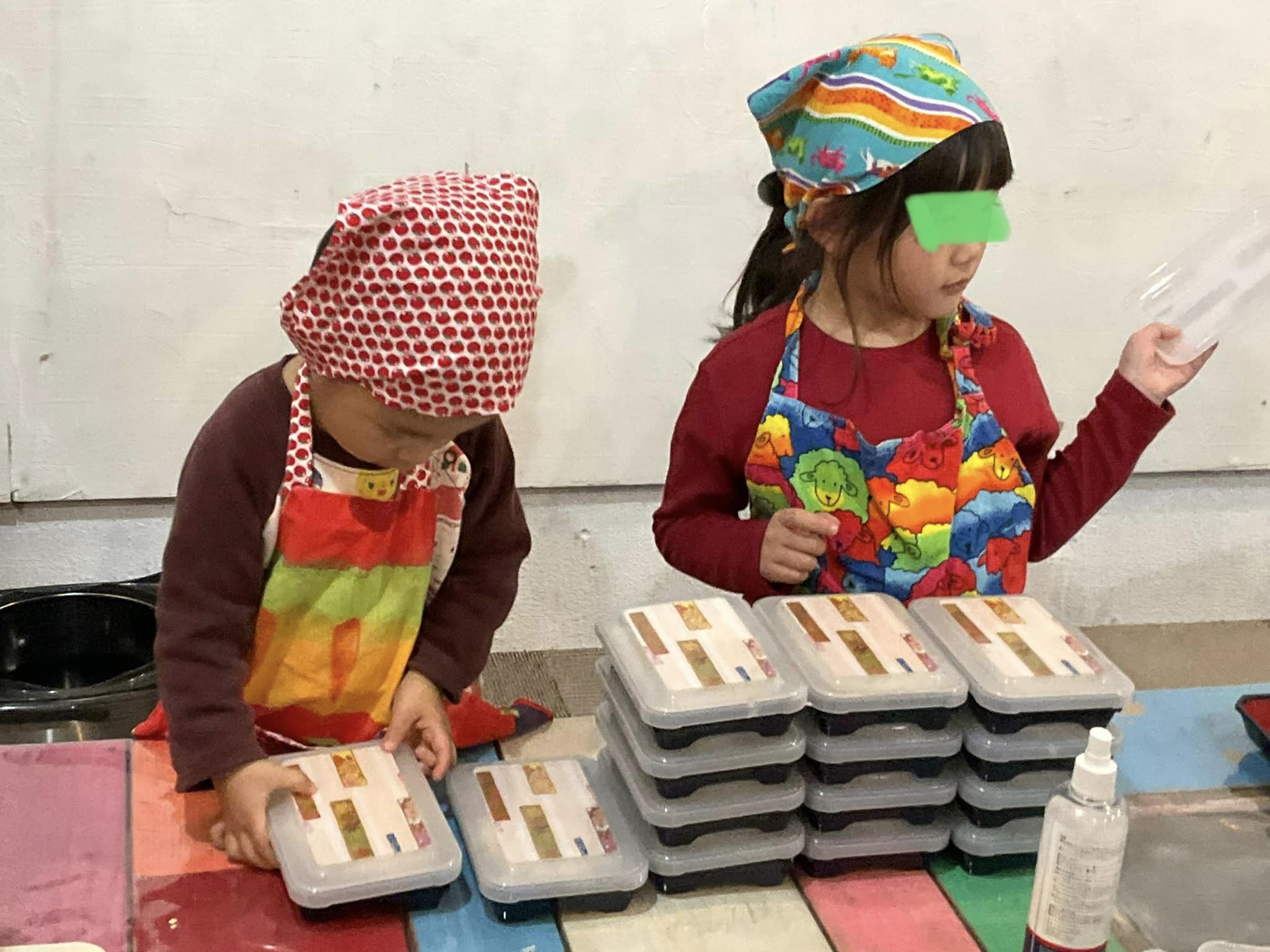
Pinocchio also offers a variety of other programs, such as: "Yorozu Sodan" consultation for problems at home or at school; "Parenting & Anyone Cafe" for mothers and fathers with children; "Peer Counseling" for people with disabilities, conducted by staff with physical disabilities; "Cinema Club"; and "Rental Space". Some of the programs were initiated by the ideas and requests of volunteer staff members, and anyone may become a planner.
Ana Lus-san who attends Japanese class, teaches the volunteers about the Internet and other things while studying Japanese. A person in their late 80s who comes to Pinocchio because their care manager told them, "You are safer here [at Pinocchio] than at home alone," also comes here and watches over children with the volunteers.
"Here, sometimes guests become supporters, and supporters become guests. Everyone is both a guest and a supporter," says Ms. Kawana.
Mariko-san, a volunteer staff member, joined as a volunteer after she happened to pass by the Adult Cafeteria which is held every Tuesday, and had a delicious lunch. Pinocchio's sliding glass doors - that allow a view of its interior - give the feeling of an open atmosphere and a space where anyone may enter the circle.
"I hope it will become a place for everyone in the community, including children, elderly people, and people with disabilities," says Ms. Kawana.
While Pinocchio is a place created by each and every volunteer, it also seems to be an important place for all of them.
All of the various activities are linked to each other.
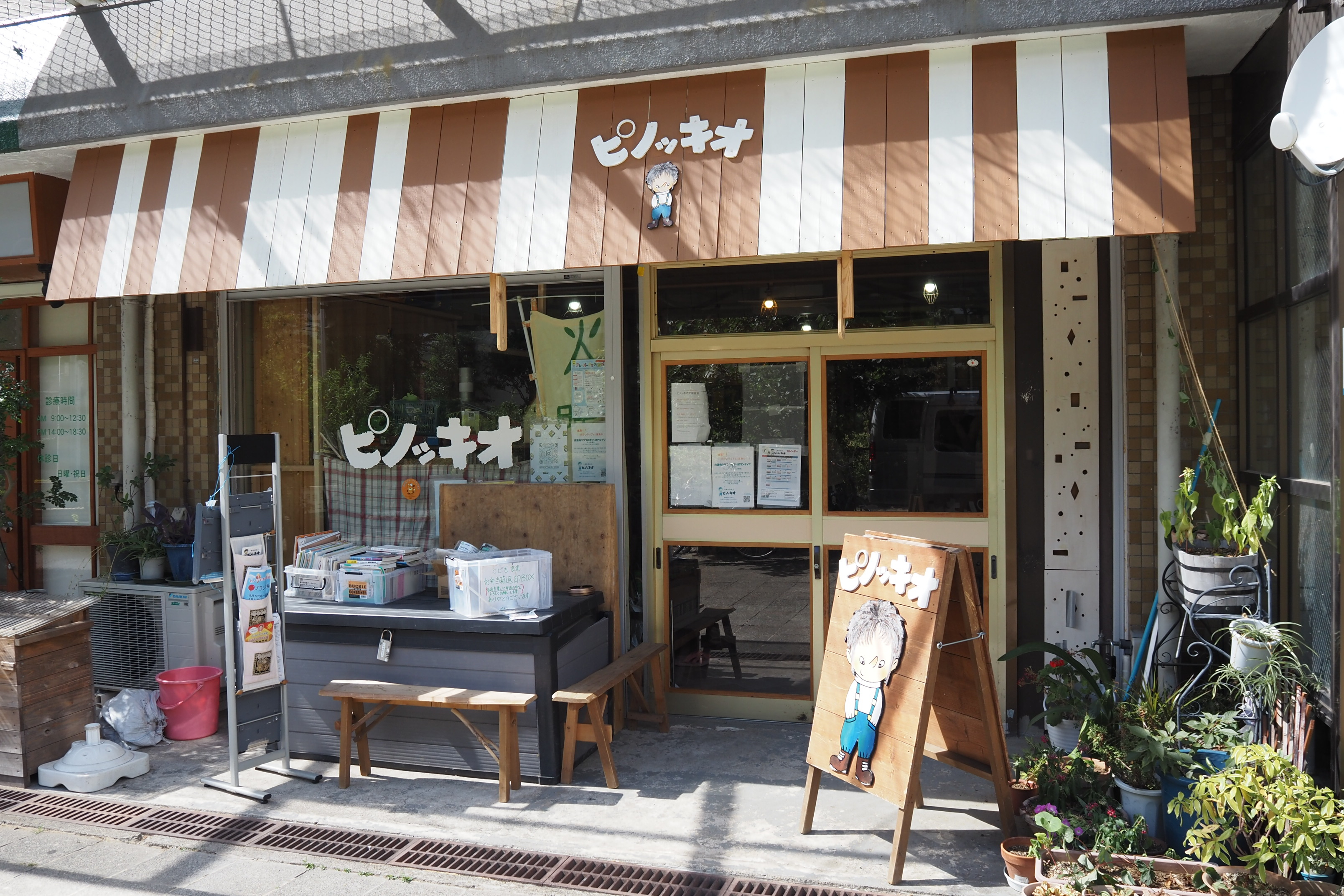
Three years have passed since Pinocchio has been established. Their activities are expanding continuously.
"All of our activities are linked. I am also a social worker, and one of my activities is to provide consultation services for people who face problems and difficulties at home and at school. However, it is not easy to get people to come just by telling them to visit us for a consultation. When we open a cafe or other place to talk, we sometimes see people who seem to have concerns, and we talk to them. I opened the Parenting Cafe because I wanted to eliminate isolated child-rearing. For mothers who cannot sleep because of child-rearing, we have mats so that they may nap here. We want to look after children and elderly people together in the community," says Ms. Kawana.
However, she also feels that there are difficulties in doing so.
"We once had a child [at Pinocchio] who we were concerned about. We wanted to share information about the child with the school, but even though we approached [the school], it was difficult for us to work together. As children grow up, the community is involved: not only their homes and schools. I hope that related people and institutions will be able to share information better."
Pinocchio is expanding its functions depending on the needs of the community while gradually increasing the number of collaborators to become a place for everyone in the community. It was a gentle space created by the hands of local community members.
"Many different people gather at Pinocchio. From here, we are connected with many more people. I believe we have the capacity to accept all kinds of people here. Anybody who comes will be welcome." Ms. Kawana is a person with broad-minded and has a great deal of curiosity. We look forward to Pinocchio's further development.
*This article is based on information available at the time of the interview. For the latest information, please contact the organization directly.
